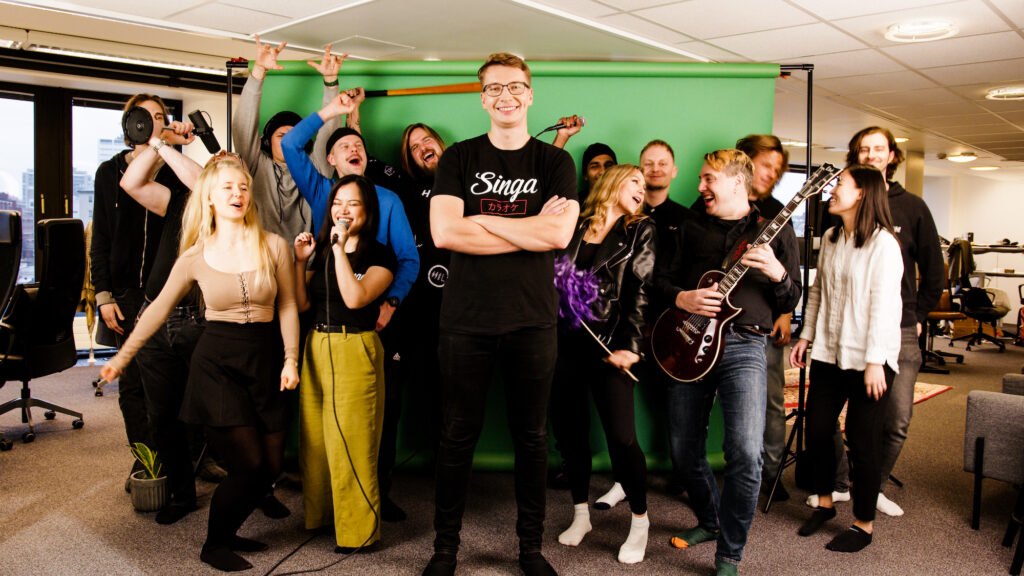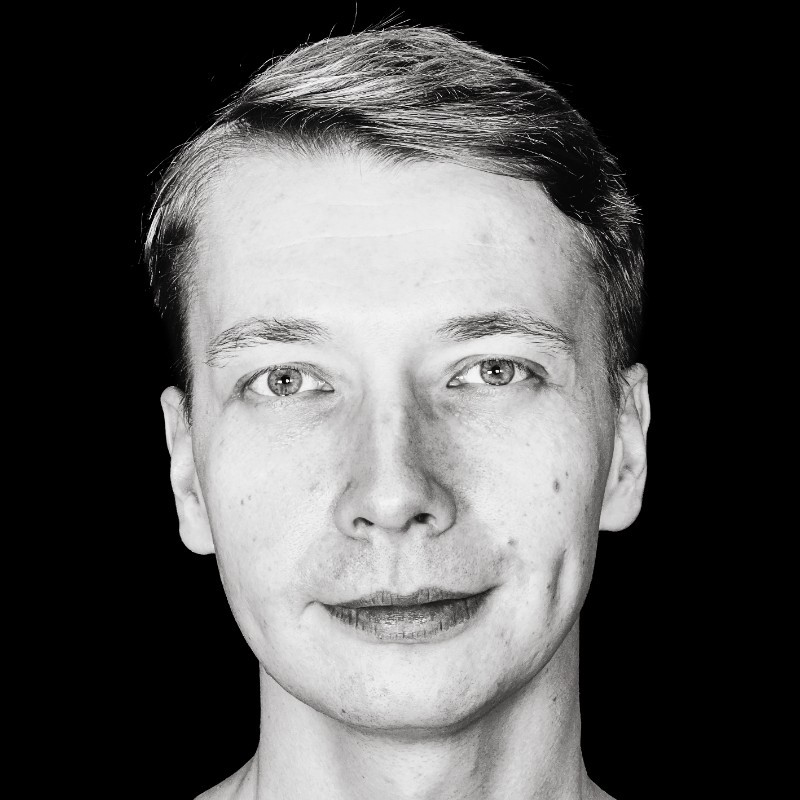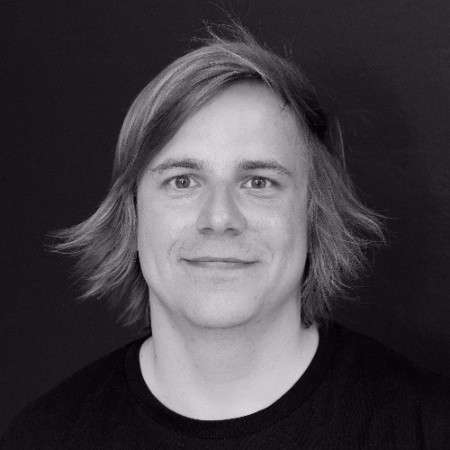Part of what makes running your own SaaS start-ups exciting for so many leaders is the personal hand you have in developing the company culture. When you first start out everything is personal in some ways, but as things grow often the company culture takes a life of its own. This is especially true in SaaS companies where remote work and distributed teams are becoming the dominant trend, especially after the pandemic.
So then how do leaders deal with these changes? And how can you maintain that spirit from the early days as the company grows and changes?
In exploring the impact of growth on SaaS company culture we reached out to Atte Hujanen (CEO and founder of Singa) and Nils Paajanen (COO). Singa is an iPad-based karaoke software for bars, karaoke boxes and entertainment venues. They also have a consumer app that lets you sing your heart out at home using your computer, mobile, or smart TV. Their mission is to revolutionize the karaoke experience and bring more singing to the world!
Hey Atte and Nils! Thanks so much for joining us. To start things off can you tell us a little bit about the history of Singa and how the company has grown over time?
Atte: We originally founded Singa in 2013 to do for karaoke what Netflix has done for movies and what Spotify has done for music – to update an entire industry. Our goal has been to provide a truly modern karaoke solution unlike anything else on the market. We had seen alot of early success and managed to grow to about 35 employees before the pandemic hit.
Nils: The pandemic was especially hard on us, since most of our customers had to close their doors along with the restrictions. We suffered heavy losses on our B2B side, but managed to make some small growth with our consumer app. Thankfully no one had to get laid off and we are coming out of the pandemic booming.
Atte: We recently managed to raise over 3.6 million euros in an Investor crowdfunding campaign and are now looking to expand into new markets and scale our company.
Wow it’s so great to hear how you have managed to grow even with an uphill battle. Would you say that company culture played a role in Singa’s growth and success?
Atte: I would say company culture played a huge role. Even during the uncertainty of the pandemic, everyone came together as a team and was super positive. We have always tried to put people first and provide a flexible and supportive working environment. This flexibility made adapting to the pandemic easier and people knew the company had their backs, so we had very little turnover despite the tough circumstances.
How would you describe the company culture at Singa? And I have to ask, is karaoke a big part of the company culture?
Nils: For Singa the biggest thing is that we let everyone be and express themselves freely just like with karaoke. The culture is a tapestry of a bunch of different weird people who share a love for music (and often a dry and dark sense of humor). Everyone here is very different. There is no mono culture. This is reflected in the work style. People choose their own tools, schedule, and projects. Everyone is empowered to take ownership of their work which fosters a deep sense of ownership
Atte: Being your best self is more important for us than remaining on a strict schedule. We try to encourage people to themselves first. We also try to facilitate an office environment that allows people to meet and have a good time. We try and hold company company trips and of course office karaoke parties as often as we can
Now to put the spotlight on you. How have you, as the company’s CEO and COO, defined and contributed to shaping Singa’s company’s culture?
Atte: I think I have painted high-level, broad strokes. I have pushed a “no rules” attitude and encourage everyone to do things their way as long as they bring their best. I feel like everyone has a lot of candour towards one another, and try to be honest and frank with everyone as well.
Nils: One thing that people should especially be mindful of is that you are what you repeatedly do. This is important in building company culture and is what will rise to the surface in crisis situations. Culture is how you react in hard times. Will you take care of people or what are your priorities? Bemindful of the choices you make everyday.
Is the company’s culture similar to how you initially envisioned it or how has Singa’s company culture changed over time?
Atte: I think so. Obviously, the pandemic has affected it and made some parts of the company culture more dominant. The culture is more hybrid and remote than we had initially envisioned, but that is an operational thing. But all and all, when you look around everyone is really independent working with small teams to push things forward on their own.
So you mentioned the challenge of keeping a remote and global team connected. Is that the biggest problem with your company culture currently?
Nils: I think our biggest upcoming challenge is scaling our culture as we grow. The culture has not codified so far. While most people have been here for some time, we need to be mindful with more and more people joining. This means making our culture and structure abundantly clear from onboarding.
Atte: I agree with this. We need to be able to maintain the good parts of our culture while scaling the company. Our current structure is still easy to maintain for 40 to 50 people, but it might get you in trouble when we have 500 people.
Nils: As we get more people it is still important that we allow people to be themselves. We need to make sure we have an inclusive culture that affords diverse backgrounds who want to join.
And how are you dealing with that problem?
Atte: We recently hired an experienced person who has scaled recruiting and culture before. He will be responsible for introducing new processes and tools into our culture as well as making sure the scaling has solid footing going forward.
Well it’s great to see you are making some progress. So then what do you expect the company structure and culture to look like in 1-2 years?
Atte: I don’t see it as being that different from the current company culture. Many companies have been able to scale to really large teams with similar independent cultures. Of course, it will take work to maintain.The basic ideas of freedom, working in small teams, being accountable to colleagues and the company should work in any size. This is something that has been proven by companies like Spotify and Netflix
Thank you so much for taking the time to speak with us. For a final word, what advice do you give to other SaaS companies for building their company culture?
Atte: There is no one model or playbook to take when it comes to company culture. You need to investigate all the different models and cases and find one that works with who you are as a leader. There are companies which are processes oriented where classical leadership models work quite well. Uber is one example where they need to focus on outperforming competitors. If your market can have multiple winners you can put more focus on the independence and creativity of your team.
It is all about you as a leader, your strategy, and what you set out to do. No one model of culture fits all organizations.
Reflect on what you as a leader bring to your company culture!
It was great talking with Nils and Atte about how they have built and maintained the company culture at Singa. You can head to singa.com/buisness to learn more about how they are revolutionizing the world of Karaoke!
Be sure to check out Team Compass, the best team management tool to help build transparency and communication as your company grows!


